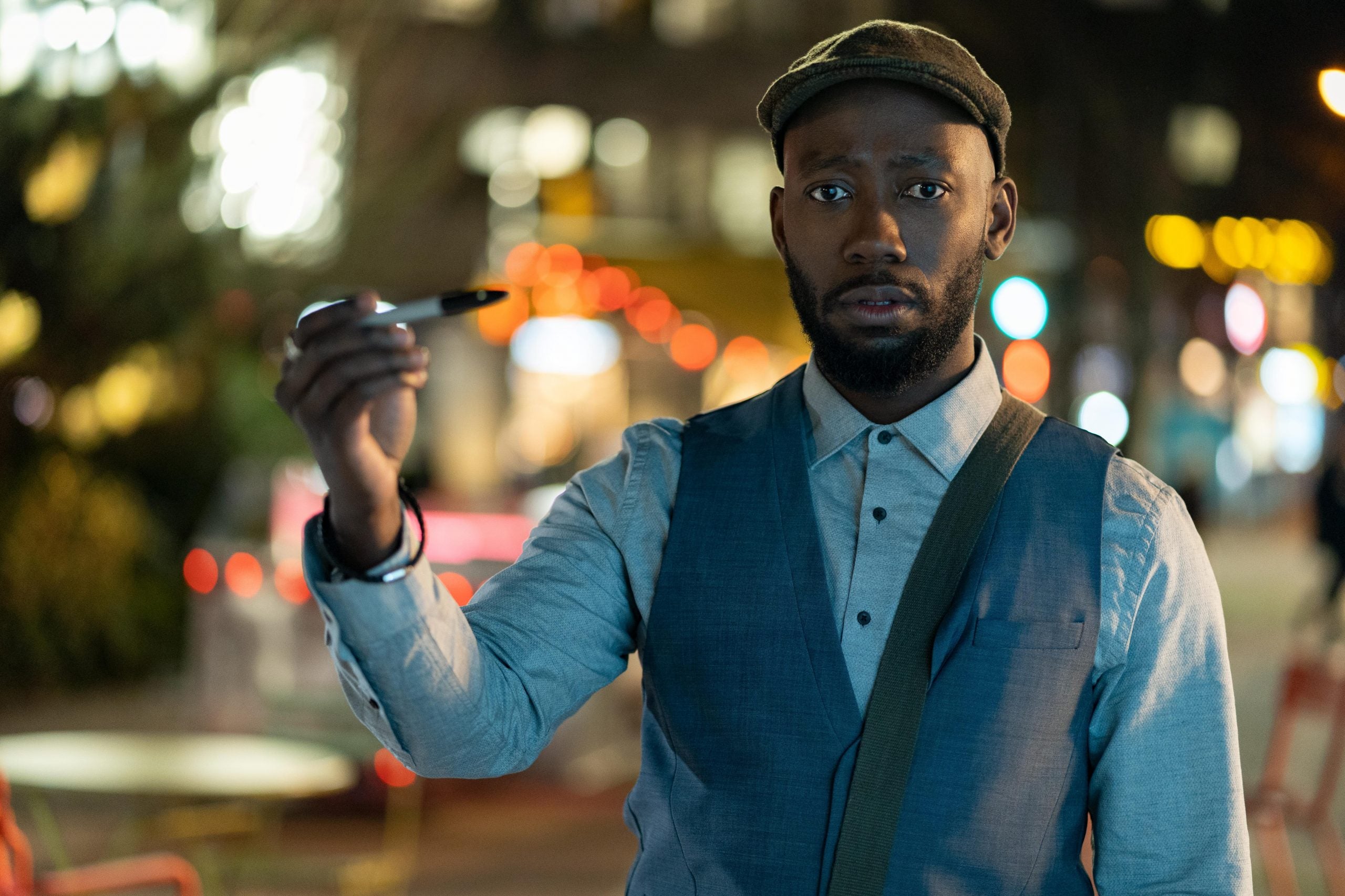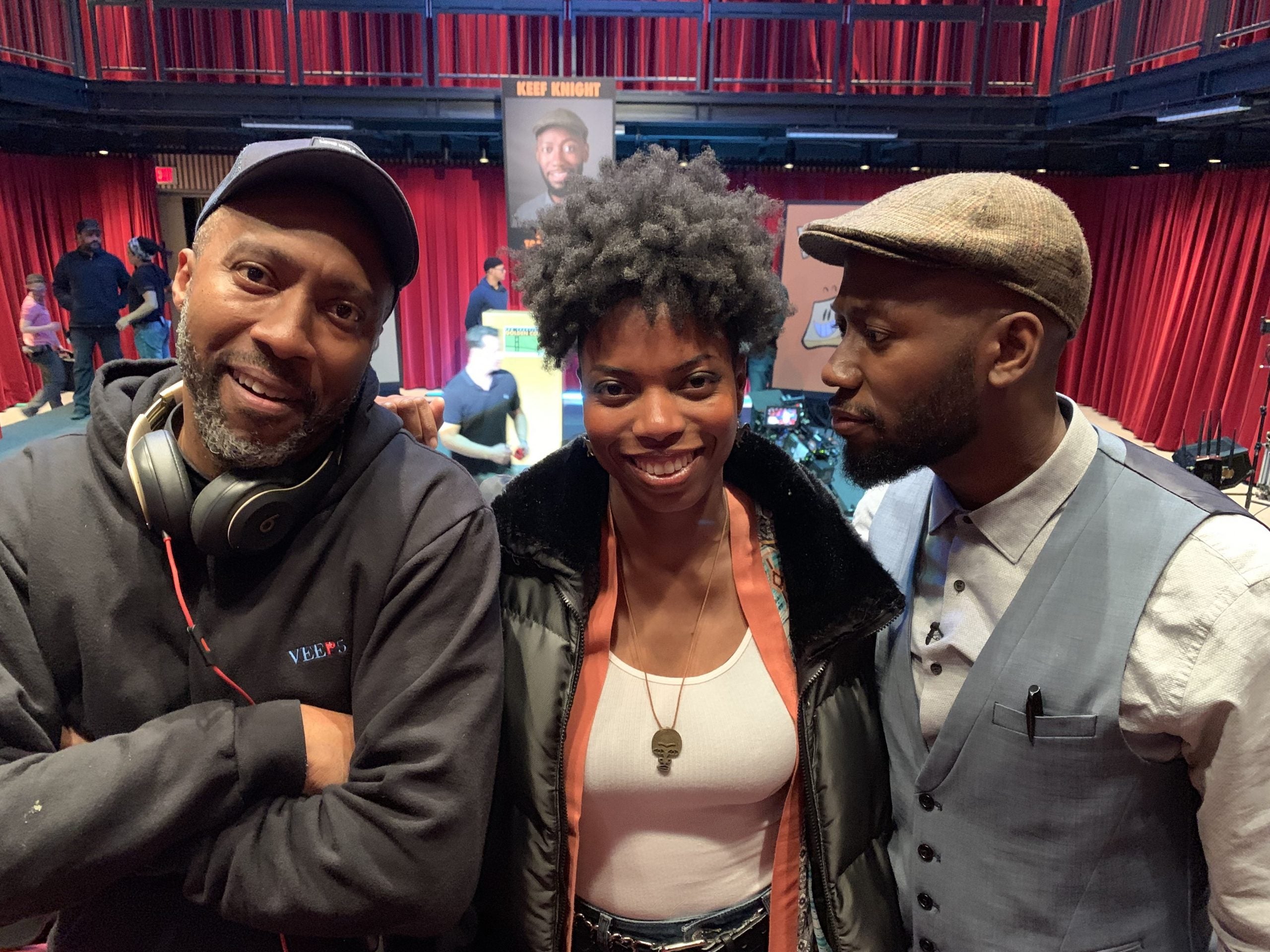
Music industry execs at Def Jam Recordings held an actual funeral service for the word “def” once the slang term made the dictionary. Since Erykah Badu sang the lyrics “I stay woke” 12 years ago on “Master Teacher,” the term “woke” has taken a similar journey, from Black nationalist relevance into the mainstream.
Today Hulu launches its new comedy series Woke—starring Lamorne Morris (New Girl) as cartoonist Keef Knight—at a time when being woke has never been more important; yet the term itself has been commodified to sell t-shirts, jewelry and, now, TV shows. Directed mostly by executive producer Maurice Marable, and based on the real life of comic-strip creator Keith Knight (The K Chronicles), Woke sidesteps its loaded title by being damn funny through food for thought.

Woke shows Keef Knight awakening his own racial consciousness after an incident with the San Francisco police, a story told in part through animated sequences voiced by comedians J.B. Smoove, Eddie Griffin and Cedric the Entertainer. ESSENCE spoke with Lamorne Morris and director Maurice Marable about launching a show based on cultural self-awareness in lily-white Hollywood and Woke’s water-cooler-conversation themes.
ESSENCE: How did you first get involved with Woke?
MAURICE MARABLE: My agents at the time were repping another director who was in talks for this project. They slipped me the script. I’ve always been pushing my agency to make sure that I’m looking at things that are not, obviously, stereotypical—that don’t paint me as a quota director. I wanna do more quirky stories about us, but I wanna make sure they’re smart, right? And the pilot script was just so amazing. I said, yeah, I wanna engage. I met with them and broke down what I wanted to do: the look, the feel, the attitude, what changes I would make. And it eventually came my way. They liked what my vision was for the show.
LAMORNE MORRIS: I was on New Girl for seven years, and the subject matter was fun and light-hearted. Occasionally we would tackle some subjects that meant something. We tackled race on an episode that I wrote. We tackled feminism, sexism in the workplace. We tackled some of those things, but we more often touched on them and kept it moving. When I was done, I said I want to be part of something that moved people in a way, socially. I wanted to do my part, whatever it was that I could do. I’m always learning new things about what’s happening in the world, trying to learn more about the plight of our people—and about people in general and different cultures. I’m a work in progress on that front, but I’m always trying to understand better. And I thought, well, I’m an actor. The best way I can do it is in performance, right?
When I read the script, not only did it resonate with me, it was me. It was how I walked my life. I knew stuff was going on in the world, but I never really got activated to do anything about it until it was [finally] time to speak up. Just say what you see, call it out. Read more, understand more, don’t always believe what you’re told. This show definitely matched my energy, so that was the reason why I got involved.

ESSENCE: What is Keef Knight’s personal outlook on his Blackness, and how does it evolve during the course of Woke? Just as he’s awakening, he starts dating a White woman.
MORRIS: [laughter] Well, a lot of it is based on Keith’s real life. His wife is German, and so we wanted to stay true to that. But it’s all intentional, to evoke conversation and spark the audience to go, “Ooo, why is his girl White? Why is [Keef’s friend] Ayana a lesbian?” They were very intentional on making sure that these conversations happen.
For the character, we wanted to make the journey a real one and what people actually go through internally. And for Keef, he is a work in progress, just like most people. This all is so new to him, with his eyes being opened for the first time. His Blackness to him is a spectrum. It is, “I can do everything. I can be anything. I can say what I want. It doesn’t mean I’m less Black—it doesn’t mean I’m not as Black as the guy across the street who has dreds and a Black wife.” He lives his life a certain way, and he’s new. He’s like a baby just waking up for the first time. I think it’ll be great for the audience to see him evolve and to evolve with him.
ESSENCE: What are the challenges of pitching shows about Black culture in an industry with, besides the recent appointment of Alana Mayo at Orion Pictures, no Black gatekeepers?
MARABLE: Every meeting I went to with executives, the creatives and I would be, except for maybe three times, the only Black people in the room. And you’re talking about sitting at a table with 15 other people. So right there, there are no executives at a high level sitting in that space, talking to you about your show.
We had a meeting one night and it was all the producers, the network and all that. And there are a lot of things people say: “Well, I don’t understand this. You need to be clearer about this.” And then there’s a moment when you have to raise your hand and say—and I said this—“Who are we making this show for? Because what I don’t wanna do is make this show that explains to White people who Black people are. That’s not what this is.” If the audience is 80 percent Black, it’s still a hit. When Atlanta first came out, I doubt it was a universal thing. It’s a thing where people start to go, “Oh, that’s dope,” and then it becomes a universal thing.
So when it comes to the nuances of culture, there’s nobody there, and you sort of have to explain things. And it’s frustrating. They are the gatekeepers of how much [of our culture] they’re gonna let us share and what truths we are allowed to put out there. But at the end of the day, they turned out to be great partners. Once you have the pushback—once you say, “This is not who you are, this is who we are”—they get it. I think in the short run, Black creators have that power right now to say that.
